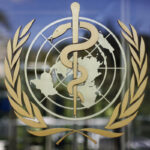
In Denmark, the coronavirus is everywhere, yet streets, cafes and shops are full. Tens of thousands have to isolate because they tested positive, but employees are back in offices, and bars and restaurants are no longer required to close at 11 p.m. or to ask for proof of vaccination.
On Saturday, thousands flocked to Copenhagen’s nightclubs, which reopened last week for the first time in nearly two months.
Nearly two years into the pandemic, in one of the world’s most prosperous nations, 5.8 million people live free of Covid restrictions, even though nearly 1 percent of them tested positive for the coronavirus in a single day last week. The country is reporting one of the world’s highest numbers of Covid-19 cases per capita, and hospitalizations have reached an all-time high.
But the government declared that as of Feb. 1, it would no longer consider Covid a “socially critical disease” and dropped all restrictions, including a mask mandate in closed spaces and on public transportation.
The end of restrictions in Denmark, welcomed by the country’s top health experts and praised by the population, could help herald a future in which rich countries can afford “living with the virus,” as long as they have high vaccination rates, huge testing capacities and strong health data infrastructure.
Jasmina Nielsen and Henrik Pryser Libell contributed reporting.




